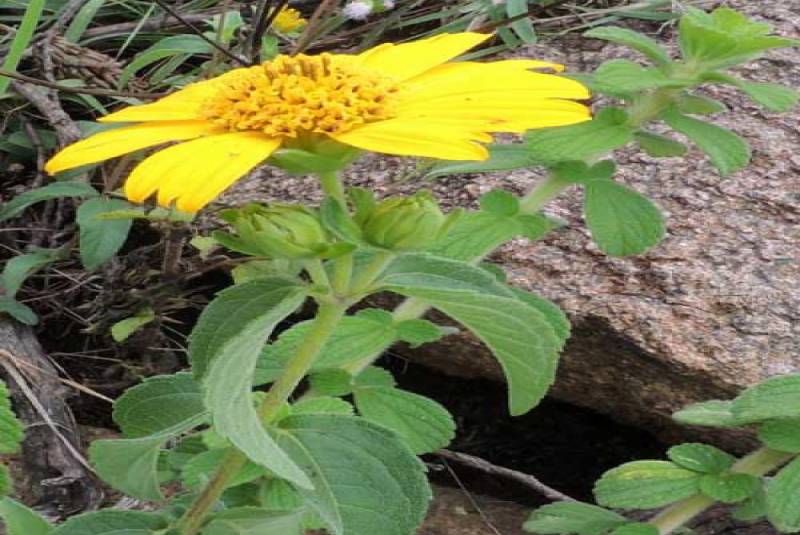
Aspilia a small plant whose sandpaper-like leaves are used for scouring dishes in rural Kenya could provide the next big cancer treatment. [Photo: Standard]
A small plant whose sandpaper-like leaves are used for scouring dishes in rural Kenya could provide the next big cancer treatment.
Called muuti by the Kikuyu, wuti by the Kamba, ol-oiyabase by the Maasai and shilambila among the Luhya, the herb is now the target for possible cancer treatment.
Dwarf aspilia, scientifically known as Aspilia pluriseta and another close relative Aspilia mossambicensis have exhibited strong ability to kill cancerous cells.
“One of several compounds we identified was highly toxic against human cancerous cells without affecting normal cells,” says the study.
Participating researchers from the University of Nairobi, University of Jyväskylä, Finland, Macau University of Science and Technology, China, Uppsala University, Sweden and University of Gothenburg, Sweden have expressed cautious optimism.
The study published on December 4 in the journal Molecules says the plant is well known and used as a medicine among most Kenyan communities.
The plant was collected from Ngon’g Forest near Nairobi and 23 compounds isolated from the roots, stems, leaves and flowers.
The compounds were then tested in the laboratory for their ability to kill cancer in different types of human cells. Five compounds, mainly of a type called diterpenoids, were found to act against cancerous cells, with one showing high toxicity against liver cancer without hurting normal cells.
The authors say while their findings are promising and exciting, a lot more needs to be done in developing a practical cancer treatment.
The weed has been used in traditional medicine to treat wounds, bruises, pimples and burns.
Studies have also shown the plant to contain compounds effective against drug (chloroquine) resistant malaria.
The roots of this plant have been found to contain antibacterial properties, which are suggested to explain its use by wild chimpanzees.
Its rough leaves and antibacterial properties are also suggested to have made it attractive for washing dishes by some communities.
Four years ago, local researchers confirmed that the perennial, woody herb with yellow flowers had the ability to cure wounds.
Researchers at the University of Nairobi and the Kenya Medical Research Institute (Kemri) reported successfully treating wounded mice with extracts from Aspilia pluriseta.
Prepared into ointment
The team, led by Dr James Menni Kuria of the Centre for Traditional Medicine and Drug Research (Kemri), had collected the weed from Ruiru in Kiambu County.
The plant parts were prepared into an ointment and tested on wounded mice at the University of Nairobi.
A second group of mice was treated with a standard wound drug, Silverex Cream for comparison.
The study reported the plant ointment to have performed almost as well as the commercial product in healing the wounds.
“We confirm the wound healing activity of A Pluriseta. Development of a drug for treating acute wounds from the plant should be explored,” concluded the study in the African Journal of Pharmacology and Therapeutics.
 The Standard Group Plc is a multi-media organization with investments in media
platforms spanning newspaper print
operations, television, radio broadcasting, digital and online services. The
Standard Group is recognized as a
leading multi-media house in Kenya with a key influence in matters of national
and international interest.
The Standard Group Plc is a multi-media organization with investments in media
platforms spanning newspaper print
operations, television, radio broadcasting, digital and online services. The
Standard Group is recognized as a
leading multi-media house in Kenya with a key influence in matters of national
and international interest.











